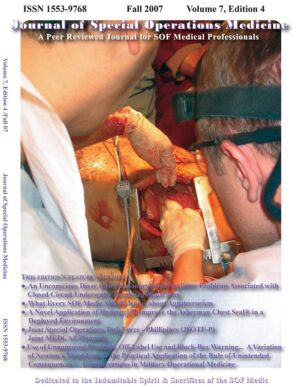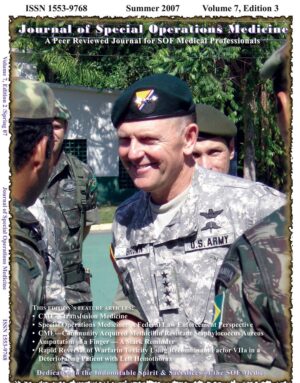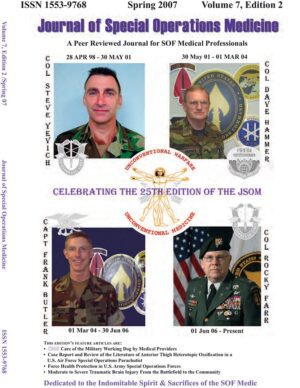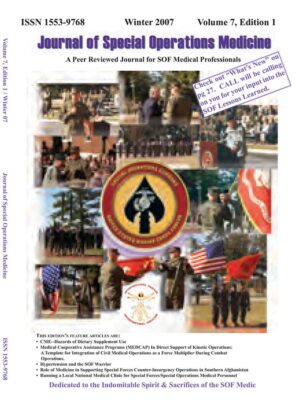Load Carriage-Related Paresthesias (Part 2): Meralgia Paresthetica
$0.00
Description
Load Carriage-Related Paresthesias (Part 2): Meralgia Paresthetica
Knapik JJ, Reynolds K, Orr R, Pope R 17(1). 94
Publication Type: Journal Article (Ongoing Series / Injury Prevention)
Abstract:
This is the second of a two-part series addressing symptoms, evaluation, and treatment of load carriage- related paresthesias. Part 1 addressed rucksack palsy and digitalgia paresthetica; here, meralgia paresthetica (MP) is discussed. MP is a mononeuropathy involving the lateral femoral cutaneous nerve (LFCN). MP has been reported in load carriage situations where the LFCN was compressed by rucksack hipbelts, pistol belts, parachute harnesses, and body armor. In the US military, the rate of MP is 6.2 cases/10,000 personyears. Military Servicewomen have higher rates than Servicemen, and rates increase with age, longer loadcarriage distance or duration, and higher body mass index. Patients typically present with pain, itching, and paresthesia on the anterolateral aspect of the thigh. There are no motor impairments or muscle weakness, because the LFCN is entirely sensory. Symptoms may be present on standing and/or walking, and may be relieved by adopting other postures. Clinical tests to evaluate MP include the pelvic compression test, the femoral nerve neurodynamic test, and nerve blocks using lidocaine or procaine. In cases where these clinical tests do not confirm the diagnosis, specialized tests might be considered, including somatosensory evoked potentials, sensory nerve conduction studies, high-resolution ultrasound, and magnetic resonance imaging. Treatment should initially be conservative. Options include identifying and removing the compression if it is external, nonsteroidal inflammatory medication, manual therapy, and/or topical treatment with capsaicin cream. Treatments for intractable cases include injection of corticosteroids or local anesthetics, pulsed radiofrequency, electroacupuncture, and surgery. Military medical care providers may see cases of MP, especially if they are involved with units that perform regular operations involving load carriage.
Keywords: paresthesias, load carriage-related; meralgia paresthetica; mononeuropathy; nerve, lateral femoral cutaneous; Bernhardt-Roth syndrome
PMID: 28285487
Related products
-

A Novel Application Of Hydrogel To Improve The Asherman Chest Seal® In A Deployed Environment
$0.00 Add to cart -

Rapid Reversal Of Warfarin Toxicity Using Recombinant Factor Viia In A Deteriorating Patient With Left Hemothorax
$0.00 Add to cart -

Moderate To Severe Traumatic Brain Injury From The Battlefield To The Community
$0.00 Add to cart -

Role Of Medicine In Supporting Special Forces Counter-insurgency Operations In Southern Afghanistan
$0.00 Add to cart





